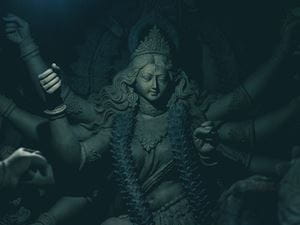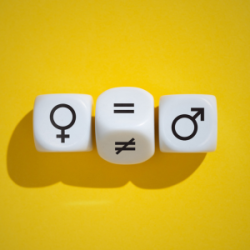
Hinduism does have a concept of sin. There is sin in Hinduism, but it is different than some other religions, like Christianity or Islam. Unlike other faith systems, there is no sense of inherent sin or eternal sin or original sin in Hinduism, but there are actions that one should not do. Sin in Hinduism is often described as an action with a clear consequence which should be atoned for, rather than a bad thing for which one should feel guilty or which requires divine forgiveness.
In Hindu belief systems, the right way of action means following Dharma. Not following Dharma is a sin, in the sense that it is action that is wrong and spiritually harmful to the individual practicing the action. In many religious scripture texts, such as the Vedas and the Bhagavadgita, the word Papam, or paap, means sin. It is the corollary to praiseworthy acts, which are called Punyam, or punya. These two descriptors encompass the consequences of karma, or our actions on earth, which can be understood as assessed, again, in the context of dharma. These actions determine the fate of the soul, and influence the cycle of reincarnation. Thus, there are consequences for acts that go against Dharma.
In Hindu thought the sin is the impure consequence of one's harmful actions, which will have negative ramifications on the person’s body and spiritual growth. The discussion of sin in traditional sacred texts often focus on the ways that sinful motives can be absorbed by the soul from the outside world. On earth, the human body is exposed to a variety of toxic “poisons” which can enter a person if he or she is not careful and always on guard to follow the right way. A good Hindu should learn how to shield their body from the bad influences of the world, which may enter by emotions like greed or envy, or the bad influence of meat or alcohol.
Different Hindus scriptures discuss different categories of sin, with different categories and actions. One common reference is to consider sins in three categories: the most serious sins, known as the mahapatakas; secondary sins, known as the upa patakas, and minor sins, known as the prakirna patakas.
Mahapatakas are the most serious sins, and cannot be purified or counteracted with good actions on earth. These sins require some suffering to counteract and bring the person and the body back into a spiritually pleasing place. These sins are highly specific to the Hindu tradition, and include actions such as killing a brahmin or eating certain very specific forbidden foods.
Upa patakas are less severe sins than the mahapatakas, but they are still sinful actions. Some of these sins include improper performance of religious sacrifices, selling harmful food or drink, giving false witness, and certain sexual sins, among others.
Prakirna Patakas are sins that might have been committed intentionally or by accident, and usually are the result of someone being a bit absent-minded, unaware, or not thorough in their performance of a religious rite. Sometimes they are more serious. There are certain rituals and sacrifices that can confer forgiveness of these actions onto the person.
1/17/2023 7:58:15 PM










